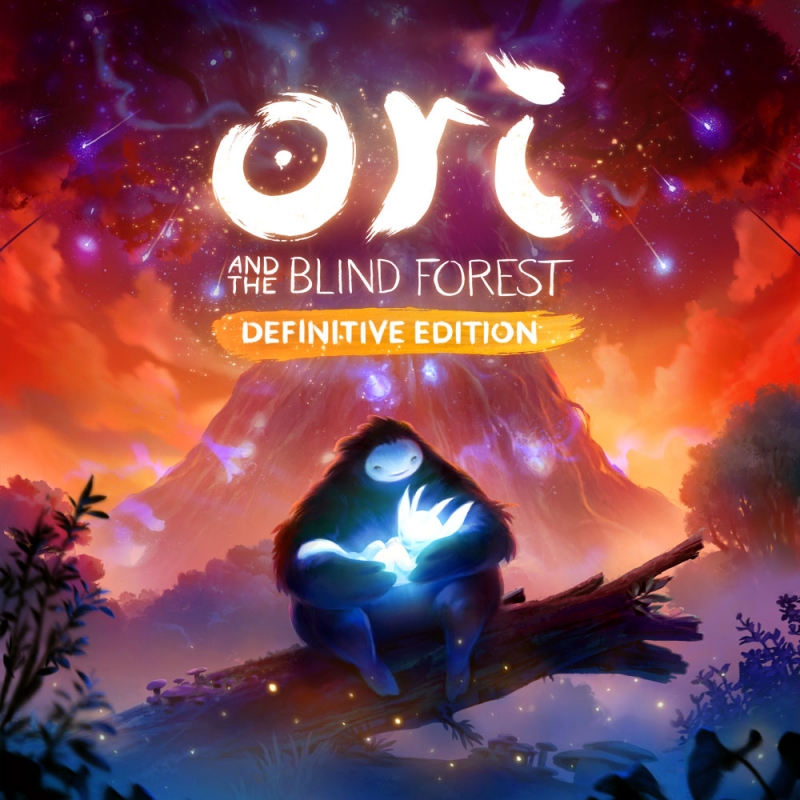Existing User Log In
New User Registration
Register for a free account to gain full access to the VGChartz Network and join our thriving community.





America - Front


America - Back


Moon Studios
Platform
 09/27/19 Xbox Game Studios
09/27/19 Xbox Game Studios  (Add Date)
(Add Date) 09/27/19 Xbox Game Studios
09/27/19 Xbox Game Studios
| Owners: | 9 | |
| Favorite: | 2 | |
| Tracked: | 0 | |
| Wishlist: | 0 | |
| Now Playing: | 0 | |
25th Sep 2020 | 2,905 views
It's a bit strange to review this right after writing about its sequel, but hey, that's how things go sometimes - the Will of the Wisps hype made me want to have both games on the same platform, so I double dipped on Ori and the Blind Forest and replayed it... again. It's been several years since the last time I went through this journey, so I came in wondering whether it had held up well, especially when pitted against its more ambitious successor.

Hi Nibel, long time no see.
It does make one hell of a first impression. The beautiful title screen alone already does a fantastic job setting the mood for what's to come, and what comes immediately is one of the most powerful prologues seen in any game, introducing you to the main characters in such an incredible way it's impossible not to become immediately attached to them. Then, the gameplay starts, and the first hour is a complete joy - The opening area oozes charm, in large part due to its wonderful music, and there's just a real sense of wonder and feeling that you're in for an incredible adventure.
This feeling continues over the first few portions of the game, with all of the first few areas being quite distinct and fun to traverse through, all culminating in an extremely memorable dungeon - after which you're greeted to an incredibly relaxing scene, so peaceful it almost makes it feel like you've already finished the game. There is still over half a game to go through after this, though, but unfortunately the game becomes increasingly hit and miss after this point.
The next major area after this is also quite a memorable moment in the game, however it's also where it begins to show its flaws.
Firstly, because that area is on the extreme opposite side of the map compared to where you are, this is usually the moment where most players will try to roam around a bit more freely on the way there, and thus will begin to notice how much the exploration fails at meeting the standard usually seen in other Metroidvanias. The world is just interconnected enough to feel believable, but there's nothing of note to find in any of the areas you've already visited, other than more of what you have (such as extra life or energy). You won't come across any new characters, any new power-ups, any new enemy encounters... at best, there'll be a little platforming section you missed and that's it. There are also paths you still can't go through because you need a late game upgrade, but again, they'll only lead to an inconsequential item. This is an issue also present in Will of the Wisps, but it is far less noticeable in that game because it makes less of an attempt at feeling like a Metroidvania - the areas in the sequel all feel more separate and distant, more focused on the level design within each area rather than the world as a whole. It's an admission from the developer that they are better at the platforming than they are at world-building, but it's something they apparently hadn't yet learned about themselves in the Blind Forest days.
The second crack that starts to show up at this point is that the developers kinda ran out of ideas for interesting upgrades, because from here on, every new power-up you find is some kind of extension or improvement over something you already have, but usually in a way that makes the old version completely useless. These late game items do have new and unique uses for certain situations, but in general gameplay they will essentially replace your old powers, which were a lot more interesting and felt more intuitive to use.
Of course, the Definitive Edition - which is the version just about everyone ever will be playing if they're not in 2015 - also adds in a new area and two more upgrades, and they can be acquired quite early into the game too. One of these new power-ups is a pretty simple movement tool found in many games of this kind, whereas the other is an incredibly inspired addition that works in conjunction with the game's most fun and iconic ability to make it even more versatile and exciting to use. However, these upgrades feel largely at odds with the rest of the game, because you can tell the levels weren't designed with these in mind - these abilities can and will make a lot of the platforming challenges completely pointless as they allow to entirely bypass sections. "Breaking" the game like this is usually fun in a Metroidvania, but it's nowhere near as rewarding in a platformer, which is where Ori's strengths lie. Furthermore, in order to make these new abilities feel more integrated into the world, the developers decided to add in a lot of arbitrary locks scattered throughout the game, that you need to open with that new item - but the process of opening them completely breaks the pacing of the gameplay, and because the upgrade is found in an entirely optional and somewhat obscure area, most players will spend the majority of the game leaving most of these doors unopened, wondering how or when they'll ever get the item required. It just makes it more annoying to go for 100%, as it's never fun to do a complete clean-up of the whole map for a second time when you're right at the end of the game. Again, these new items were also found in Will of the Wisps, but in that game they were toned down a bit, and had the benefit of an entire world map designed with them in mind, removing any flaws attached to these otherwise fun to use abilities.
The game's biggest issue, however, is a lack of replayability coupled with a very short length. You're not getting a lot of game time here, to say the least. As someone who's played through this story multiple times, I always come into it hoping to find a renewed sense of excitement, and always leave it after few hours feeling like there was nothing new to see that I hadn't already seen before. Even though it has been multiple years since my latest playthrough, the whole game felt extremely familiar. There are many reasons why this is the case, but the easiest to point out is the linearity - an issue many Metroidvanias have, but where other games in the genre can be good at hiding it, Ori and the Blind Forest always makes sure to point you exactly where you need to go to next, and even if you can try to do something else, you won't ever find anything meaningful. Linearity isn't inherently a bad thing in a videogame, and for a game that's trying to tell a story, having a strong narrative is exactly what you need in order to make that linearity feel rewarding. Unfortunately, even though there is a good story to be told here, it is very minimalistic and keeps all of its major impactful moments saved for either the prologue or the epilogue, giving the player very little incentive to continue on their very handholdy quest. What's worse, is that you don't have a reasonable narrative goal for doing what you are doing at any point - everything you do, you do it because your fairy companion tells you to do, and there's just about no emotional pull to any of it other than it being the "right" thing to do. Unsurprisingly, this is another area in which Blind Forest pales in comparison to its sequel.

So, from the point of view of someone who's already played through this title multiple times and also has just finished playing its sequel, I... have a lot of complaints. But while replayability is an important quality for a game, especially for one as short as this one, the most valuable experience will always be the first one, and that's the one that deserves the most scrutiny. And for anyone coming into Ori and the Blind Forest for the first time, they will have an incredibly memorable journey through this beautiful world. In fact, it's probably a testament to the quality here that it remains so tangible and familiar in further playthroughs - a forgettable game, this is very much not.
The soundtrack here is absolutely wonderful and extremely varied. The art direction is stunning and depicts every different area in a very believable, but also very distinct way. The story is quite minimal, with very few characters, but still managed to pack a punch. The gameplay is fun and engaging despite its issues. There is just about nothing this game does as well as its sequel, but it wasn't meant to be judged based on how well it holds up in that arbitrary comparison. On its own terms, Ori and the Blind Forest is a joyous experience, and through its strengths and through its flaws, there is nothing out there like it.

(Converted to 8.3 out of 10)